There are clear qualities a young footballer needs to impress an elite coach like Jurgen Klopp.
No one can play regularly for a Premier League club like Liverpool without talent, temperament, courage and athleticism.
But during an in-depth chat with Liverpool academy director Alex Inglethorpe, he highlights a crucial asset that explains why the club’s quadruple bid is aided by a golden age of youth development.
“Character,” he says.
“What makes me especially proud is that no one has failed because of their character during Jurgen’s time here.”
I ask Inglethorpe for further explanation.
“You work here for ten years to be able to audition for the first team manager,” he explains.
“If you can’t make an impression, it’s because you’re not quite up to par on the football field yet. It would be foolish to fail because of bad decisions about the car you drive, the watch you wear, the training shoes.
“Jurgen is connected to everything. If a kid came to first team training with a 10k watch, he would see it. The senior players would do the same. Tell me, what would you think?
“If the senior players think you’re a big Charlie, the first thing they’ll do is punch you in training to teach you a lesson!” I suggest.
Inglethorpe nods.
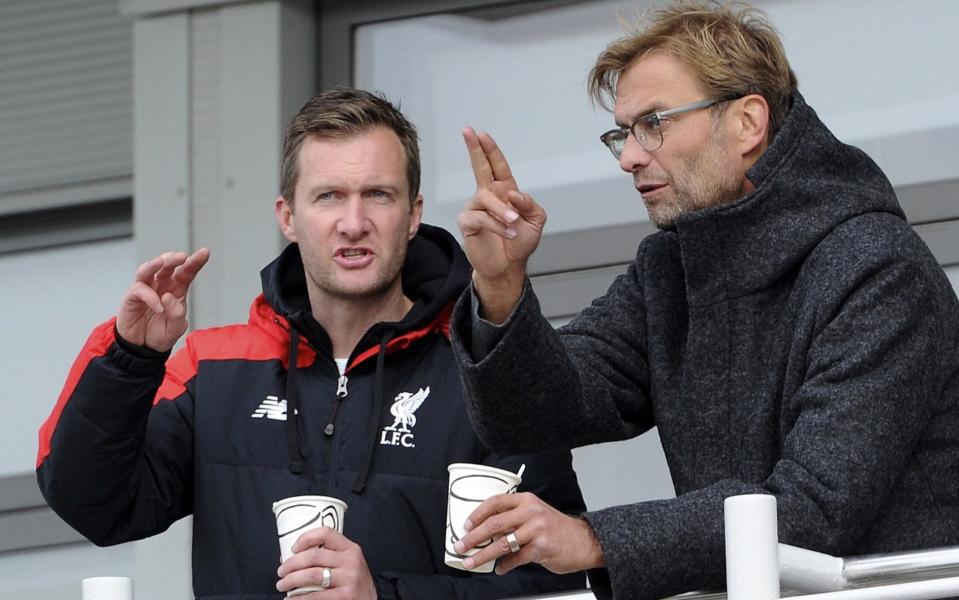

At Liverpool, this test of character has gone beyond advice. Inglethorpe informs me that in addition to a cap of £50,000 per year at the academy, under his directorship – now in its tenth year – a ‘car clause’ has been introduced limiting engine size to 1.3 litres, a warning of the dangers of big engines. way too early.
“It’s mainly a safety issue,” he says.
“I don’t want guys who just passed their exams with those big pieces of metal, but I was also tired of seeing a parking lot full of Range Rovers. If someone shows up with one of them, they park it next door.
“We have a wage structure that is quite old-fashioned. We give them work to do. We tell them to hand in their phone at 8:30 am and give it back before they go home.
“You have been a senior player. You know what it’s like when a young player enters the locker room. You want respect for the path. They must first earn what comes their way. Everything else is fine later. To get there, you have to do it on the field.”
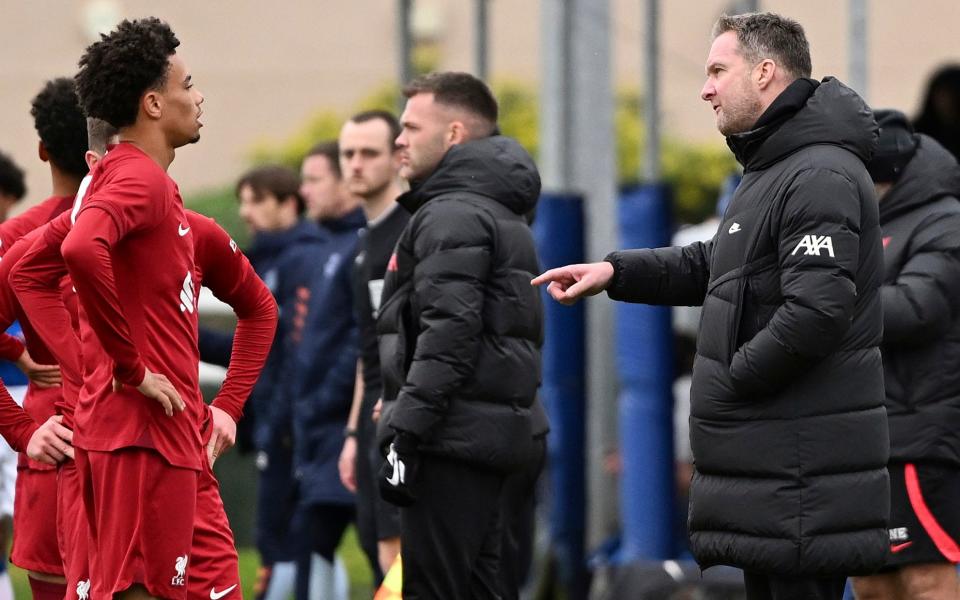

Alex speaks my language and evokes memories of legendary football coach Ronnie Moran who welcomed newcomers to first-team training at Melwood with the message: ‘we don’t want big heads here’.
“Trent [Alexander-Arnold] is a very good example,” says Inglethorpe.
“When you get into the senior team, the best thing you can do is have senior players who become your advocates. There was no flash guard at Trent. I remember him driving the same car for years. He would wear the same tracksuit. As soon as he made the step up, Jordan Henderson, Adam Lallana and James Milner invested time and effort into helping him. The same went for Curtis [Jones].
“Now that baton has been passed and Trent is the vice-captain, making sure the next one down the line has the same characteristics.”
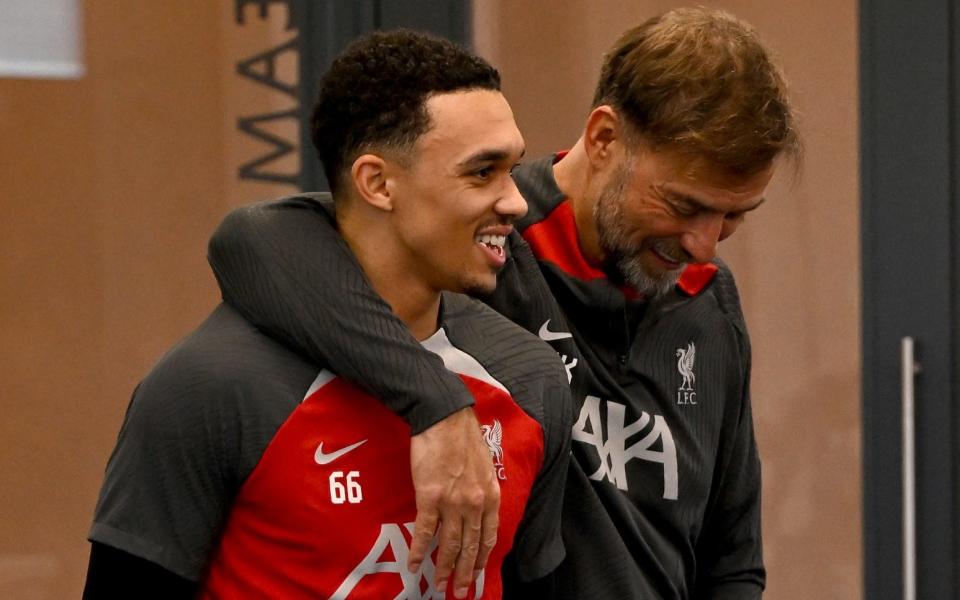

More and more academy graduates are passing the ‘auditions’ crucial for Klopp’s latest trophy quest which continues against Chelsea at Wembley in the League Cup final on Sunday
There is a picture on one of the walls of the youth training center in Kirkby that I am as proud of as I am of any of my football achievements.
In 1999, the club commissioned a photograph of the seven homegrown youngsters who were fully established first-team players; myself, Robbie Fowler, Michael Owen, Steve McManaman, Dominic Matteo, David Thompson and recent debutant Steven Gerrard.
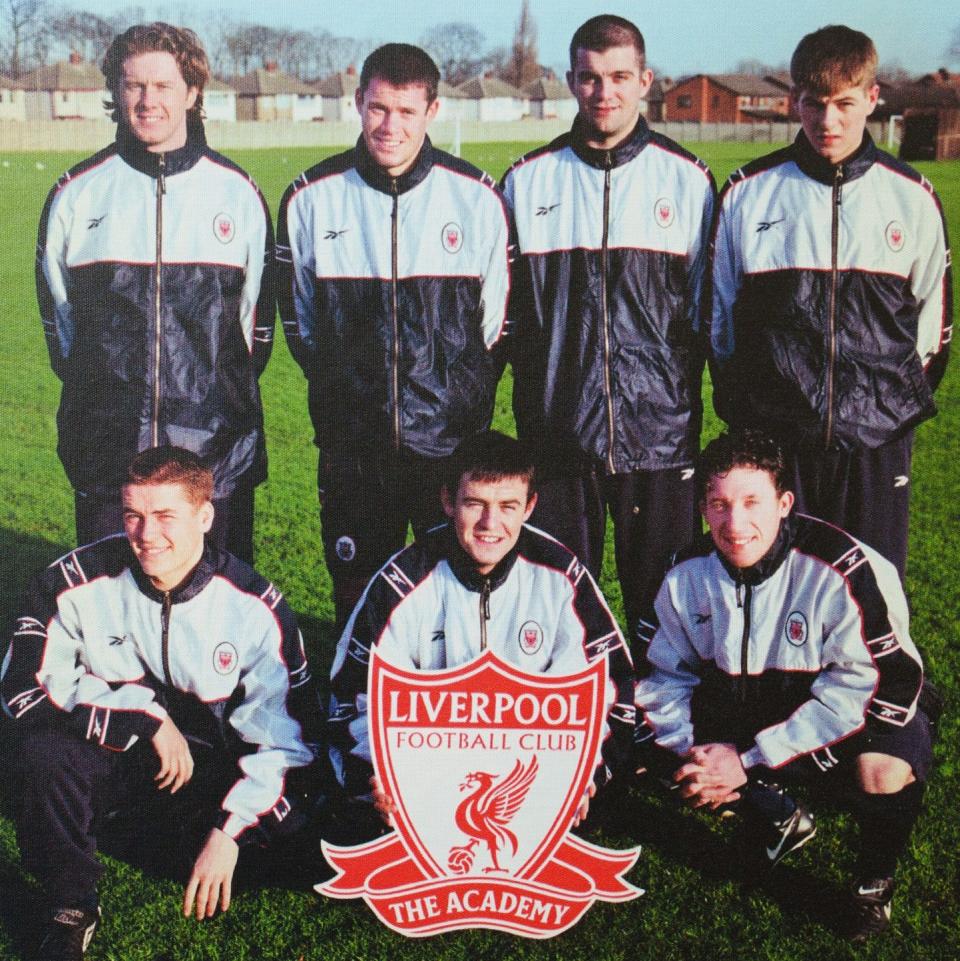

Together we have won 31 major trophies for the club. I hear the club hopes to replicate that image for the class of the 2020s; Alexander-Arnold, Jones, Caoimhin Kelleher, Jarell Quansah and Conor Bradley are the standouts.
On Wednesday evening against Luton Town, six former or current youth players aged 21 or under played their part.
“It’s fair to say that without them Liverpool wouldn’t be in this weekend’s Carabao Cup final and wouldn’t be going for four trophies,” I suggest.
“Thanks to all of them, but Jurgen is the difference,” says Inglethorpe.
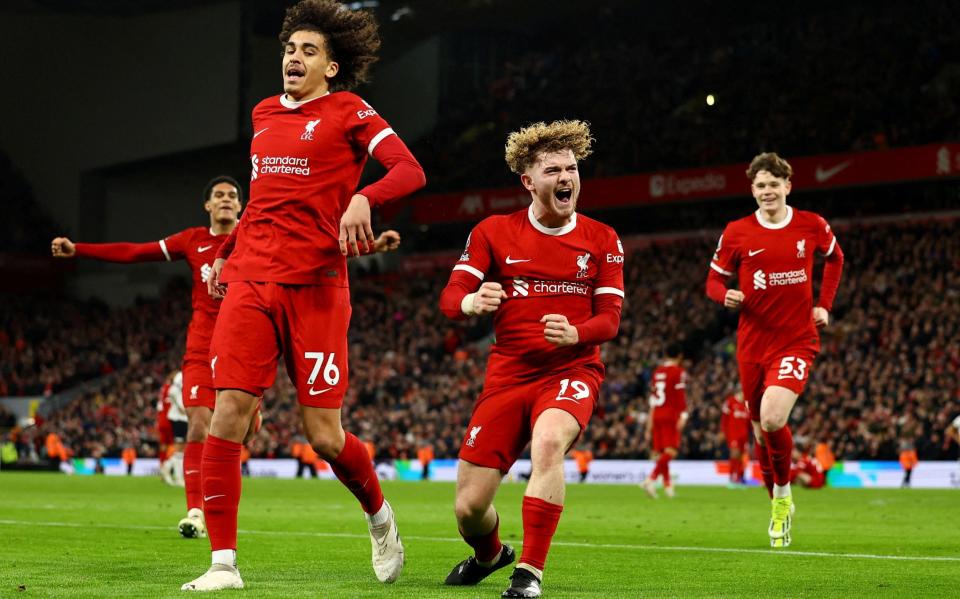

“There are many good academies, but not all clubs have a manager who has the courage to play with young players in big moments. He doesn’t just give ten minutes here and there when the team is 4-0 up. There are so many examples of him playing against almost complete academy teams. There are times when I looked at the starting XI and thought, ‘Wow, I’m not sure even I would do that’.
“Jurgen not only talked about developing the youth, he actually did it. Caoimhin (Kelleher), who played in the 2022 League Cup final, is the best example of this. It would have been so easy to pick Alisson in the final. He believes in these players.
“There is a proud tradition of the academy producing first-team players at Liverpool – of course you are part of that. But I’ve always said it should be more than just making a debut. That can happen for a lot of players, especially with the schedule and the many games these days. What I want is for the academy to play a role in winning the club trophies and competing on all fronts.”
In addition to the more established first-team players, Klopp has also regularly seen Ben Doak, Bobby Clark and James McConnell in his youth policy during this campaign. Like Harvey Elliott, they joined Liverpool’s youth academy after starting their careers elsewhere, as academy policies across the country evolved to look beyond the city limits.
“I wanted to win the battle in our own backyard first, get the best from Merseyside – and then look further afield,” says Inglethorpe.
“There was a period when there were too many white, middle-class boys in the academy. At one point we had 10 percent diversity and had to work to improve that. Now we have players with different cultures and backgrounds and we are better at that.”
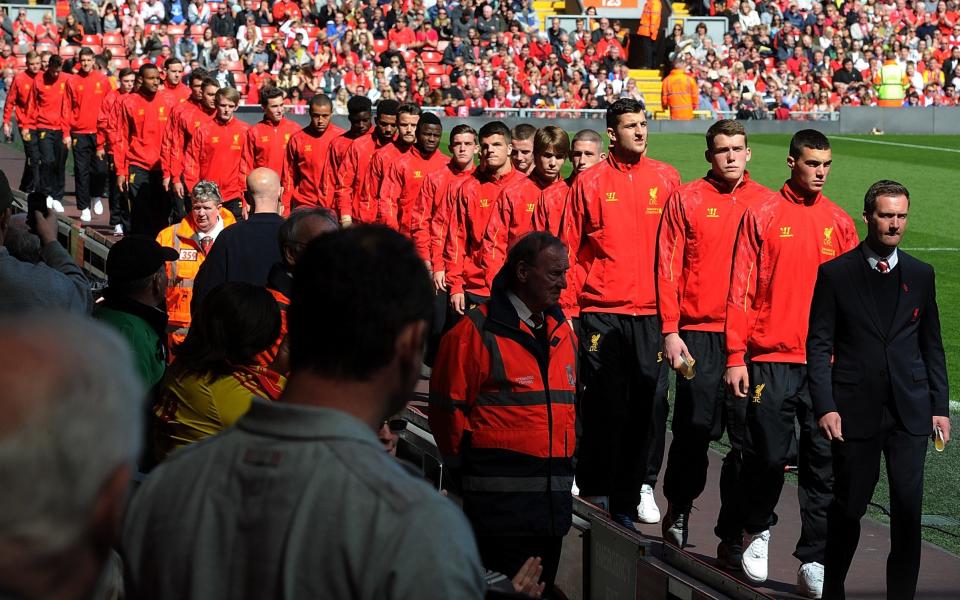

The bond between Liverpool and the first team was strengthened when the training locations merged two years ago. The rewards on and off the field are self-evident.
“We agree that the under-21s and under-18s will try to do reasonably well [tactical] impression of the first team – recording the non-negotiables. From the under 16s onwards we will be prioritizing different skills across different age groups, with more technical work,” says Inglethorpe.
“There is always a lot of understandable emphasis on the number of appearances by academy players, but from a purely business perspective no one talks about expenditure.
“There are a number of academies spending £40 million a year. We are closer to £13 million. If you think of £130 million over ten years, what is the return on that investment? We have sold around £160 million worth of academy talent.
“We have studied it and we estimate that there is around £300m of academy talent in this building. That can fluctuate, of course, but if you look at Jarell [Quansah], he is our fourth choice at center back this season. He ensured that the club did not have to attract a new central defender last summer. What value do you attach to that?
“A Premier League player costs between £15 million and £25 million, and the average Premier League wage is £60,000 a week. So if you have three academy guys on the bench that could save somewhere in the region of £70m a year.”
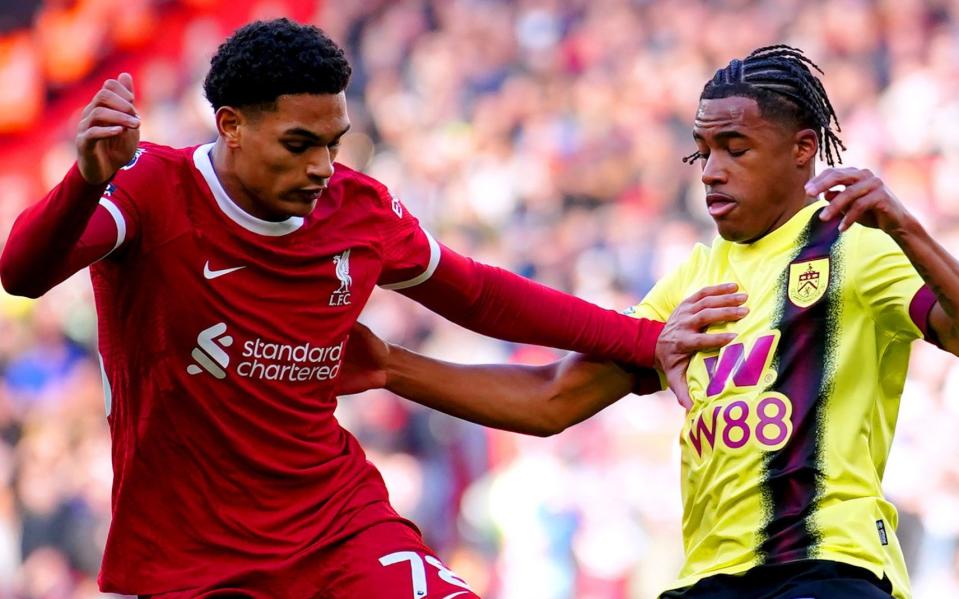

In addition to players, Inglethorpe prides itself on its assembly line of coaching talent; Wolves’ Gary O’Neil and Tim Jenkins and Blackpool’s Neil Critchley are former associates. Michael Beale may have had a tough period, but he is expected to have a long coaching career like Steven Gerrard.
But the greatest pride is always that players who arrived as schoolchildren are on the threshold of becoming superstars.
“Watching them is like looking at your own son. You only see their mistakes,” Inglethorpe admits.
“Some players are gold medalists, you know straight away that they are going to make it. I’m told Michael Owen was like that when he was here.
“There was another one called Carragher,” I interrupt.
“I heard he wasn’t on stage and came on much later,” Inglethorpe laughs.
“I tend to work with the silver or bronze medalists who come up later. Even Harry Kane, who I worked with as a youth coach at Tottenham, was like that. Maybe I have a blind spot for the gold medalists.
“There are different ways to get there. Some players take the elevator, others take the stairs.”
Win or lose, many of the newest academy classes are guaranteed to climb the Wembley steps this weekend.